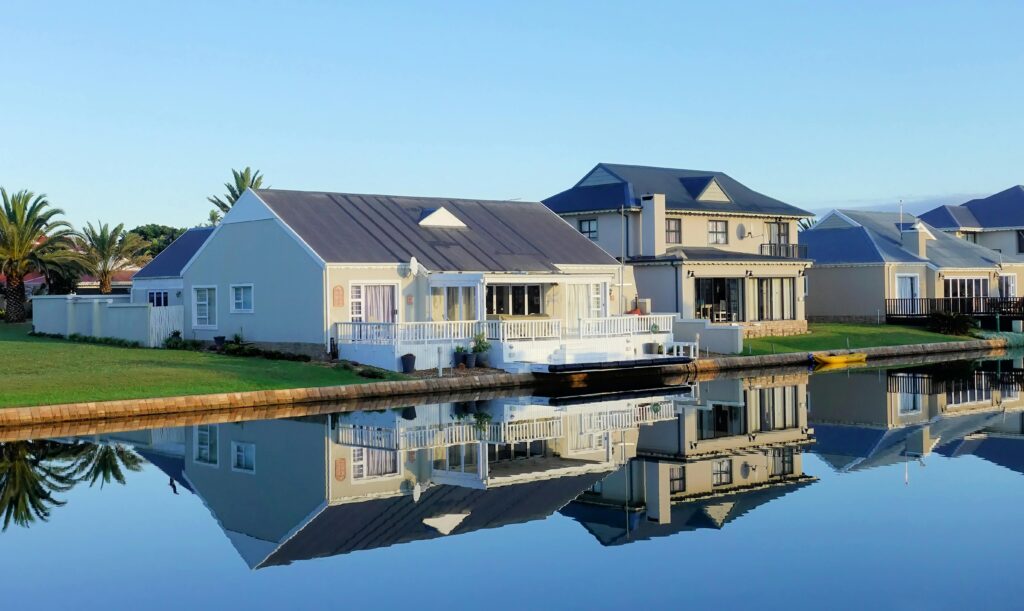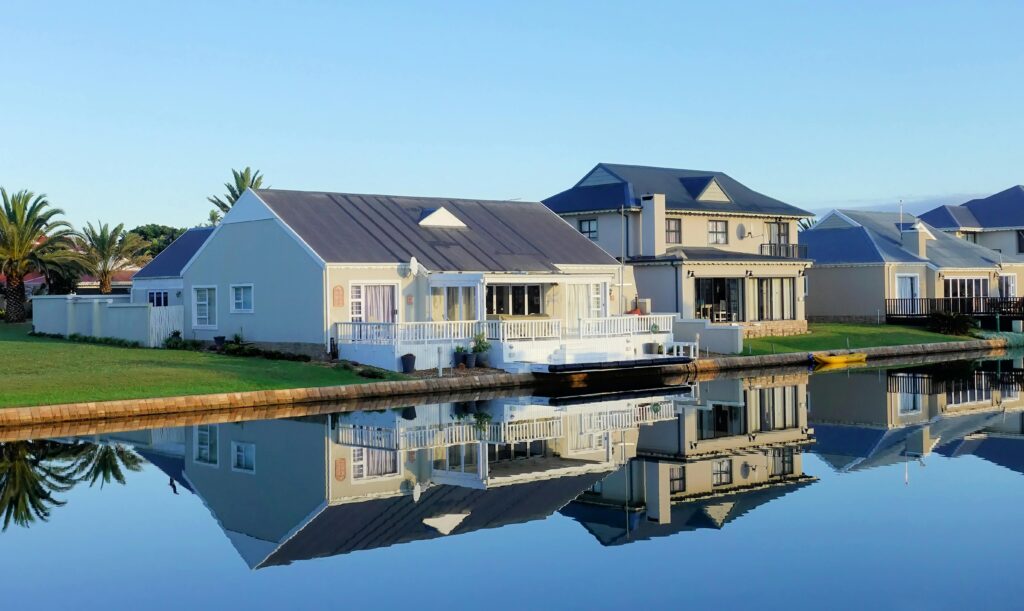Becoming an Airbnb host is an enticing venture, promising a stream of income and the thrill of hospitality entrepreneurship.
Yet, like any business endeavour, it’s vital to grasp the full financial picture before delving in. Beyond the alluring revenue figures, hosts must navigate a landscape of operating expenses that can impact their bottom line.
To help you make informed decisions, we will break down all these expenses so you can accurately assess your potential profits and obligations.
In this article, we embark on a comprehensive exploration of Airbnb host expenses, ensuring a clear understanding of the costs associated with this exciting venture.
Understanding Operating Expenses
Operating expenses encompass the range of costs incurred to maintain and operate an Airbnb property. Investing in durable items for rental properties reduces replacement expenses over time, making it a cost-effective strategy for long-term management.
These expenses extend far beyond mortgage or rent payments and delve into the intricate details that contribute to providing a comfortable and appealing guest experience.
In addition, many of these operating costs qualify as deductible expenses, which are crucial for Airbnb hosts to reduce their taxable income and optimize their tax filings. Eligible Airbnb tax deductions typically include repairs and maintenance, utilities, and cleaning services.
By breaking down these expenses, hosts can accurately calculate their potential profits and make informed decisions about pricing, investments, and overall property management.
Hosts should also calculate expenses and consistently track their income and expenses to ensure effective financial management, maximize profitability, and maintain compliance with tax regulations.
Later in this article, we will cover common deductible expenses that Airbnb hosts should be aware of.
Initial Investment and Startup Costs
Launching an Airbnb business requires more than just listing a property online—it starts with a significant initial investment.
Startup costs can include purchasing or leasing a rental property, furnishing and decorating the space to appeal to guests, and securing any necessary licenses or permits required by local authorities.
The amount you’ll need to invest upfront varies widely depending on the size, location, and type of property you choose.
For instance, outfitting a cozy apartment will generally cost less than preparing a large family home for guests.
Don’t overlook the value of professional photography and a compelling listing description, as these can help your property stand out and attract bookings from the start. Professional photography is crucial for attracting bookings and requires an upfront investment.
Carefully calculating these startup costs is essential for understanding your potential cash flow and long-term profitability in the Airbnb business.
By planning ahead, you can set realistic expectations and make informed decisions that support the financial health of your rental property.

1. Cleaning and Maintenance Costs
First impressions are paramount in the world of hospitality, and a clean and well-maintained property—supported by regular cleaning services—is non-negotiable.
Cleaning expenses include the cost of professional cleaners between guest stays, as well as supplies like detergents, toiletries, and linens. Regular stock replenishment is necessary for supplies like toiletries, linens, and kitchen basics, which scale directly with occupancy rates. Professional cleaning services can cost from $75 to $300+ per turnover between guests.
Many hosts charge a cleaning fee to guests to cover cleaning costs, ensuring the property remains in top condition while balancing affordability.
Maintenance costs encompass routine repairs, appliance upkeep, and occasional renovations. Overlooking these expenses can lead to deteriorating guest reviews and a decline in bookings. Airbnb hosts should set aside funds for regular maintenance expenses to ensure the property remains in excellent condition.
2. Utilities and Services
Guests expect seamless amenities during their stay, which means consistent access to utilities such as water, electricity, heating, and cooling. Hosts should budget for utilities, which include costs for electricity, water, gas, internet, and trash removal, and can fluctuate based on guest usage. Smart home technology, like programmable thermostats, can help reduce utility costs.
High-speed internet and cable or streaming services are also considered standard offerings. Hosts should factor in the monthly costs of these services to ensure guests’ comfort and satisfaction.
3. Furniture and Furnishings
The aesthetic appeal and functionality of your property play a pivotal role in attracting guests. This involves initial investments in furniture, appliances, decor, and other furnishings.
These items not only impact guest satisfaction but also contribute to the overall branding and positioning of your property.
4. Property Management Fees
For hosts who prefer a more hands-off approach, a property manager can assist with guest communication, check-ins, and maintenance coordination. Property management service fees can range from 10-40% of a host’s revenue, so it’s important to weigh the convenience against the cost.
However, hiring a property manager or property management company comes at a cost, typically a percentage of the rental income. Hosts should weigh the convenience against the expense and determine if such services align with their business goals.
5. Insurance and Property Taxes
Property insurance is crucial to safeguard against unforeseen events, such as damages or accidents involving guests. Choosing the right insurance company and considering short-term rental insurance is important, as specialized coverage can better protect your property compared to standard homeowner’s insurance.
Additionally, hosts are subject to taxation on their rental income, which varies by jurisdiction. It is essential to fill out the correct tax form and tax forms provided by Airbnb or the IRS to ensure compliance and accurate reporting.
Filing taxes correctly and preparing for tax season as an Airbnb host helps avoid penalties and maximize deductions. Consulting a tax professional can provide guidance on eligible deductions and help you stay compliant with changing tax laws.
If you have a mortgage on your property, mortgage interest may be deductible based on the portion of your home used for Airbnb rentals. Failing to account for these financial obligations can lead to unexpected expenses down the line.
6. Marketing and Guest Acquisition
In a competitive landscape, effective marketing is vital to stand out. This can encompass photography services for stunning property visuals, social media promotion, and even fees associated with listing platforms like Airbnb.
Investing in marketing can yield higher occupancy rates and potentially offset its own costs.
7. Amortisation and Depreciation
Long-term expenses like the monthly mortgage payment, if applicable, should be considered as a key recurring cost.
Moreover, properties and furnishings depreciate over time, affecting their value and potentially requiring replacements. Amortisation and depreciation are critical for accurate financial projections. These are significant expenses that can impact the overall investment feasibility.
8. Guest Amenities and Hospitality Touches
Providing an exceptional guest experience often involves thoughtful amenities such as snacks, beverages, and local guides.
These are often small expenses that can accumulate over time, so it’s important to track them for accurate financial reporting. While these expenses might seem minor, they contribute to guest satisfaction and can elevate the overall perception of your property.
9. Legal and Regulatory Compliance
Navigating the legal landscape is essential. Expenses might include legal consultations to ensure compliance with local regulations, permits for short-term rentals, and fees associated with licensing.
To qualify for certain deductions, these expenses must be clearly identified as being for rental purposes, distinguishing them from personal costs. From understanding zoning regulations to obtaining the necessary permits, ensuring your property meets local requirements is a fundamental aspect of hosting.
Consulting legal experts and budgeting for regulatory fees are essential steps in maintaining a smooth and legally sound operation.

Homeowner Association Fees
For many Airbnb hosts, especially those with properties in condominiums or planned communities, homeowner association (HOA) fees are a regular part of the monthly expenses. These fees typically cover the maintenance of shared amenities like pools, gyms, landscaping, and security, which can enhance the appeal of your rental property to guests. However, HOA fees can vary significantly, sometimes adding hundreds or even thousands of dollars to your monthly costs. Pest control can be an additional monthly expense ranging from $40-$80.
These fees typically cover the maintenance of shared amenities like pools, gyms, landscaping, and security, which can enhance the appeal of your rental property to guests. However, HOA fees can vary significantly, sometimes adding hundreds or even thousands of dollars to your monthly costs.
It’s crucial for Airbnb hosts to factor these fees into their cash flow calculations to ensure the rental remains profitable. Additionally, before listing your property, always verify that your HOA permits short term rentals and be sure to comply with any specific rules or restrictions.
Ignoring these requirements can lead to fines or even the loss of your ability to operate as an Airbnb host, so due diligence is key to maintaining a successful and compliant rental property.forms, reducing vacancy periods and increasing income.

10. Contingency Fund
Every business venture carries an element of uncertainty, and hosting on Airbnb is no exception. Unexpected repairs, sudden vacancies, or emergency situations can arise. Hosts should be prepared to spend money on emergencies and unplanned expenses, as these costs are an inevitable part of property management. Establishing a contingency fund serves as a safety net, offering financial protection and the ability to address unforeseen challenges promptly. This prudent practice not only ensures your property’s resilience but also provides peace of mind throughout your hosting journey.
Common Mistakes to Avoid
Running a successful Airbnb business means steering clear of common pitfalls that can erode your profits and create unnecessary headaches. One frequent mistake is neglecting to accurately track expenses and income, which can complicate the tax filing process and potentially lead to costly errors or penalties. Mixing personal and business finances is another misstep that can make it difficult to claim tax deductions and may raise red flags during audits. Many hosts also underestimate the impact of cleaning fees, maintenance costs, and other expenses related to managing a short term rental, which can quickly add up and eat into your taxable income. To avoid these issues, consider using vacation rental software to streamline operations, track expenses, and monitor cash flow. Staying organized and proactive not only helps you maximize tax deductions but also ensures your rental property remains a profitable and sustainable part of your Airbnb business. By learning from these common mistakes, you can focus on providing a great guest experience while keeping your finances in top shape.
Next Steps
The allure of becoming an Airbnb host extends beyond monetary gains to include the satisfaction of providing travellers with memorable stays. However, beneath the surface lies a complex web of operating expenses that must be considered to ensure a successful and sustainable venture. From cleaning and maintenance costs to utilities, property management, and taxes, each expense plays a role in shaping your property’s profitability.
Effective airbnb accounting is essential for managing your airbnb income and total income, especially as your vacation rental business or short term rental business grows. Utilizing expense tracking tools and connecting your bank account to accounting software can help you automatically capture and categorize transactions. Maintaining separate bank accounts for your rental activities simplifies record-keeping, reduces errors, and streamlines tax reporting. Recording income and tracking gross rental income from each airbnb listing are crucial steps for tax compliance and financial accuracy. It’s important to understand all airbnb costs, including initial setup, ongoing expenses, and the financial aspects of running a vacation rental business. Fees such as the host only fee, split fee, and other airbnb service fees are automatically deducted from the booking subtotal of each airbnb listing, impacting your net earnings. Optimizing your rental space and efficiently managing multiple airbnb listings can further maximize your profitability as a host.
Understanding these expenses and planning for them meticulously is a mark of a prudent and informed host. By calculating the full scope of operating expenses and integrating them into your pricing strategy, you can offer an outstanding guest experience while still achieving your financial goals. As the sharing economy continues to evolve, transparency and foresight in financial matters will be the cornerstones of your success as an Airbnb host.













